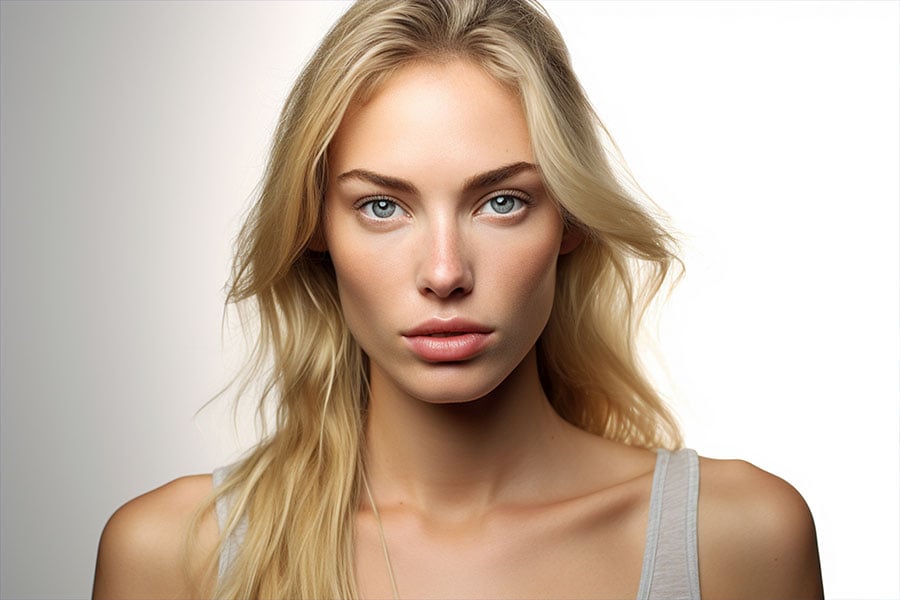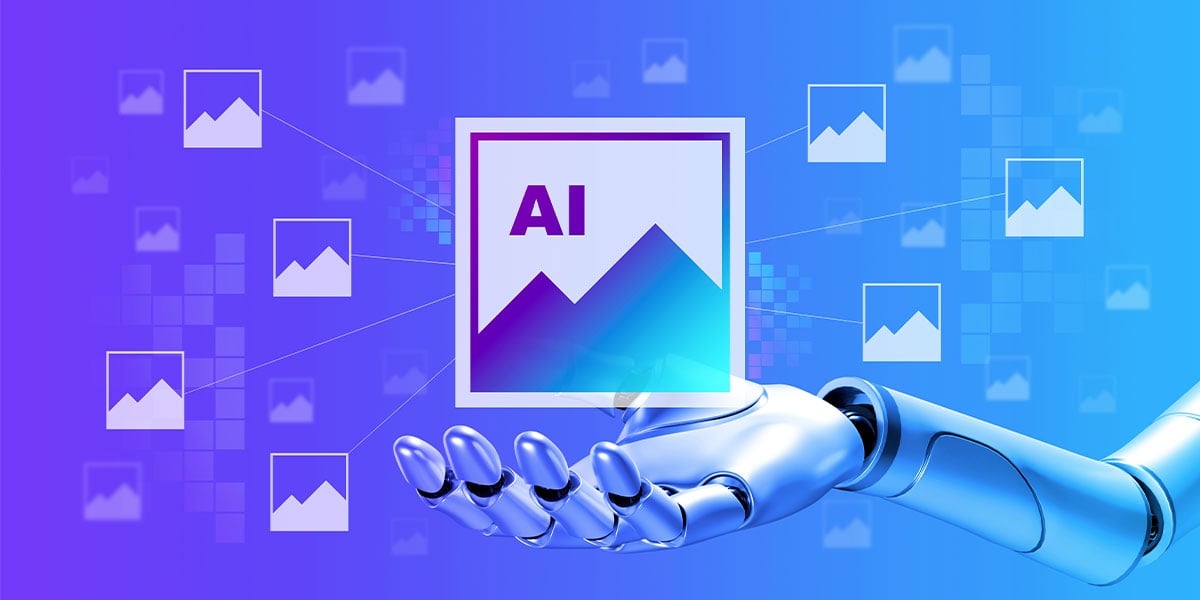From professional headshot photos created using casual selfies, to 90’s inspired yearbook photos, AI photo apps make anything appear possible.
But the fun these app provide does come with a cost: your private data.
With the popularity of AI (artificial intelligence) photo apps rising, sparking countless social media trends, we wanted to find out the real impact to phone users.
We’ve discovered the AI photo apps that collect the most data from users, and exactly how this data is used by analysing the developer privacy policies of Apple App Store’s ‘Top 20 AI Photo Apps’.
Here are our findings:
Over a third of AI photo apps use your photo data to train AI tools

Of the twenty apps analysed, 35% confirmed that photo data may be used to train further AI tools.
This included Facetune, a widely used AI photo editing app, who stated:
“We use parts of the Input in an anonymized manner, to train the algorithm and create models”
60% of apps were unclear or included no mention of this in their policies. With only one app, Fotor, stating that they don’t use data in this way.
75% Of AI Photo Apps Require Users to Sign Over Rights to Personal Images for Promotional Purposes
We found that three quarters of AI photo apps require users to grant a license within the T’s & C’s to allow the apps to use your content for a range of promotional purposes.
Meaning that the selfie you took pulling a funny face could well be used within an ad for the app without your knowledge. With some apps even stating that by agreeing to the terms and conditions, users are granting them permission to use private photos in this way forever.
This was mentioned within Picsart’s 4,308-word privacy policy:
“You grant Picsart a worldwide, non-exclusive, royalty-free, sublicensable and transferable license to use your Content—including to host, reproduce, distribute, create derivative works, display, and perform it (subject to any privacy settings set by you)—for any purpose in connection with the Service and our business, including for the purpose of promoting and redistributing part or all of the Service. This license is perpetual.”
It’s worth noting that none of the apps we analysed flat out denied doing this. 75% said that they would use your data in this way, whilst the remaining 25% were unclear, or included no mention of policy.
1 in 5 AI Photo Apps Don’t Allow Requests From Users to Delete Their Data
Trends fade over time, so naturally many of us may want to free up some iPhone storage space and delete apps that we rarely use. But what happens to your data?
One in five of the most downloaded AI photo apps don’t allow users to request for their data to be deleted.
One In Four AI Photo Apps Stores Your Facial Data After Image Creation
For the filters or facial manipulation features to work well, AI photo apps must use facial data to help them to process certain information. Your face shape, bone structure, and the location of your eyes and mouth are all vital data elements that the apps rely on in order to be functional.
But what happens to your data? Once the image or avatar is created, many users would assume that their chosen app would delete the facial data straight away. Or failing that, at least until the app is deleted.
We found that 25% of apps store your facial data within their servers after creation, with 15% declining to say what they do with it.
This data can be stored for different amounts of time depending on the app, ranging from a week to up to three years from the date you stop using the app, as per Picsart’s privacy policy:
“We will destroy your biometric data upon the earliest of: (a) the date when our purpose for collecting or obtaining your biometric data has been satisfied, (b) termination of your Picsart account, or (c) within 3 years of the date your account becomes inactive. We may, however, retain your biometric data for a longer period of time if required by law or required by valid legal subpoena.”
The AI photo apps that track the most of your personal data:
| Rank | App | % of personal data tracked |
| 1 | Photoleap | 57% |
| 2 | Picsart | 50% |
| 3 | Facetune | 50% |
| 4 | Videoleap | 50% |
| =5 | YouCam Makeup & YouCam Perfect | 43% |
Photoleap is the AI photo app tracking the most personal data
According to their Apple App Store profile, Photoleap pride themselves on providing “endless options to make your photos pop!”. Though following analysis of their privacy policy, it appears that their terms allow them endless options to track personal data. With the highest percentage of total data tracked than any other AI photo app.
These data points include:
- Contact Ino
- User Content
- Identifiers
- Diagnostics
- Usage Data
- Purchases
- Location
- Other Data
The AI photo apps with the least transparent privacy policies
| Rank | App | Honesty score (out of 7) |
| 1 | PhotoApp | 1 |
| 2 | Picsify | 2 |
| 3 | PixelUp | 3 |
We scored each of the top 20 AI photo apps on a range factors, using their individual privacy policies to score yes, no or unclear on a range of data usage points. It became clear throughout our research that many of the apps preferred to remain tight lipped on how they were using user data.
Each app was given an ‘honesty score’ to reflect how many points their privacy policies answered.
These included:
- Whether or not the app uses facial data or face recognition technology
- Whether or not face data was used to identify people
- Whether or not facial data was deleted straight away after creation
- If facial data was not deleted immediately, the length of time that the app stored it
- Whether or not face data was shared with third parties
- Whether or not user photo content and data was used to train AI tools.
- Whether or not users were required to sign a license for apps to use their user-generated content.
PhotoApp reveals the least amount of privacy practices to users
PhotoApp was consistently unclear regarding a range of privacy points. Providing unclear or no answers to every point other than whether or not they use facial data or recognition technology.
This could be deemed alarming to users, as despite being 5,129 words long, PhotoApp’s privacy policy leaves many questions unanswered. And many practices potentially hidden.
Methodology
Researchers analysed a list of the top 20 AI photo apps, sourced from the Top Free Apps in the Photo & Video Category section of Apple’s App Story. Focusing on apps which rely on facial data technology to creatre AI imagery.
We then analysed each app’s individual developer privacy policies to discover how facial data is used. This included looking into if the data is deleted straight away after image/avatar creation (and if not how long it’s stored for), if it is used to identify people, shared with third parties or used to train AI/machine learning tools – with each app being being marked as yes, no or doesn’t say/not clear.



